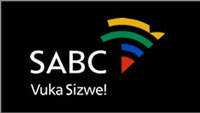The SABC has moved quickly to allay fears and speculation that its digital migration project is dead and buried due to a litany of challenges it is currently facing, including the leadership crisis and its financial meltdown.
Initially the SABC said the Digital Terrestrial Television (DTT), switched by Sentech nine months ago, would be ready in the second half of 2009 after a couple of processes, including testing, have been completed.
However, the public broadcaster's failure to supply updated information on the project since November last year prompted many observers to believe that the country's project of moving from analogue to digital broadcasting was nothing but talk.
However, Peter Kwele, GM for 2010 project and acting GM for strategic marketing and communications at SABC content enterprises, told Bizcommunity.com this week that recent events at SABC have not affected the DTT project substantially as this still remains a priority project for the broadcaster.
Some issues resolved, others not
“We were hopeful that the DTT service could be publicly launched by the middle of 2009, but this was always subject to a range of matters being concluded by the regulator, the broadcasters and the department of communications (DoC),” he said.
“Some of these matters were resolved only in the past few weeks (for example final DTT regulations, publication of SABS specification) while others remain outstanding (for example, the final frequency plan).”
Kwele said that some of the DTT highlights so far include involving approximately 2500 households that are currently participating on the DTT trial, successfully testing nine channels and 19 radio stations on the DTT pilot. The testing will continue for the rest of the 2009 year until a launch date can be confirmed.
Others highlights include providing an extensive input on the SABS specification before publication, input on the frequency plan and DTT regulations and skills development within the SABC in preparation for the launch of DTT.
He also said that an initial research had been conducted on a range of areas including installations, quality of signal, and new channel research.
No funding
“All of these are currently being processed internally and summaries of the outcomes will be provided soon to the media. We acknowledge that the SABC has not supplied significant pieces of information to date, but our DTT project continues to make significant progress and could be launched by the second quarter of 2010, and hopefully we can launch before 2010 FIFA World Cup.”
Unlike Sentech and USAASA which got state funding for DTT, Kwele said the SABC has received no funding yet, but added it is engaged in ongoing discussion with government on the project's funding needs.”
In his budget speech last month, minister of communications Siphiwe Nyanda said he was aware of the challenges of meeting some of the [DTT] targets, due in part to the funding concerns and the economic downturn.”
Several attempts to get DoC to reveal the exact amount allocated for the DTT project for this financial year were unsuccessful.



































